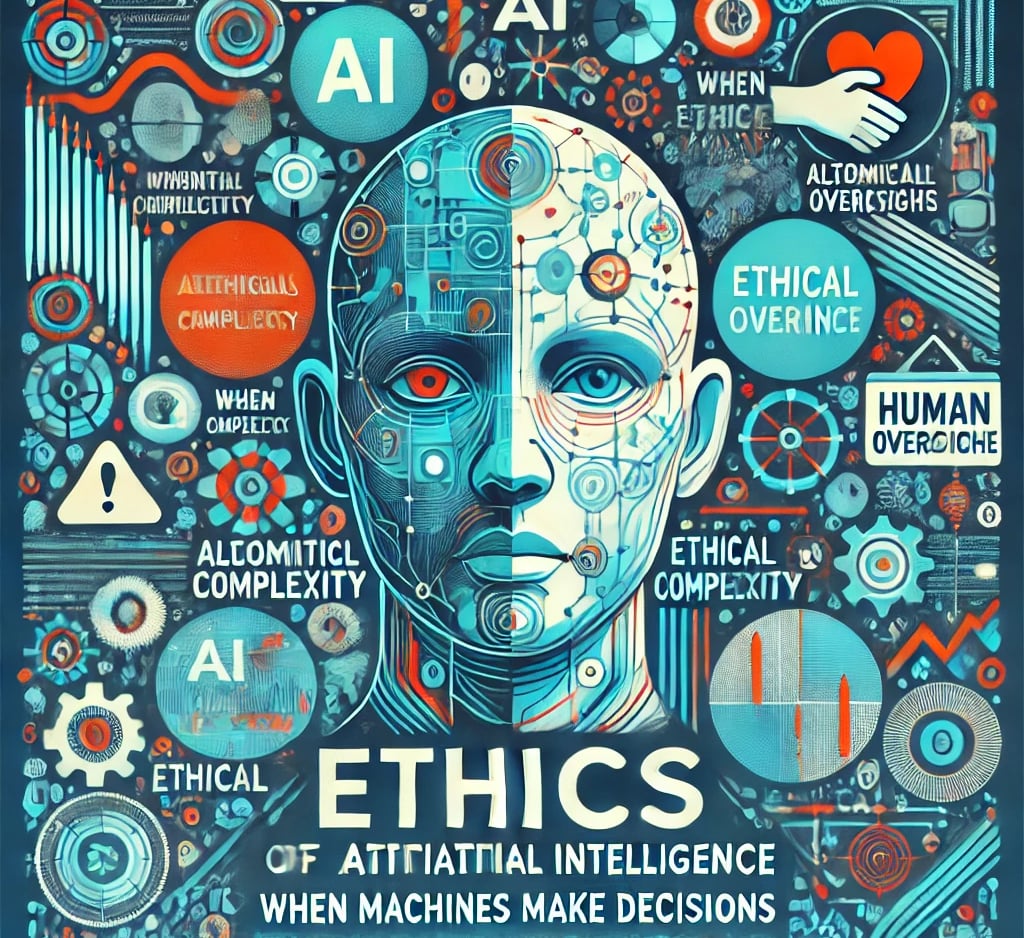The Ethics of Artificial Intelligence: When Machines Make Decisions
DIGITAL CULTURE AND PHILOSOPHY


The Ethics of Artificial Intelligence: When Machines Make Decisions
As artificial intelligence (AI) becomes ever more prevalent—from social media feeds curated by algorithms to self‑driving cars—significant ethical issues arise. One major concern is algorithmic bias: because AI systems learn from often imperfect data, they can end up discriminating. A striking example is facial recognition technology, which may perform exceptionally well on light‑skinned males but poorly on dark‑skinned females due to imbalanced training datasets. A well‑known MIT study found error rates as low as 0.8% for light‑skinned male faces compared to a troubling 34.7% for dark‑skinned female faces. This raises serious ethical questions, particularly if such systems are used for surveillance, where misidentification could unfairly target innocent individuals.
Another delicate area is the use of AI in automated decision‑making. Today, algorithms can decide whether to grant a loan, select job candidates, or even assess the likelihood of recidivism in criminal justice (such as the controversial COMPAS algorithm used in some U.S. courts). If AI operates as a “black box” without transparency, how can we trust that its decisions are fair? There is a need for both transparency and accountability: developers should design explainable AI systems that clearly communicate the rationale behind decisions, and human oversight should always be in place to review outcomes. Imagine applying for a loan and being rejected without a clear explanation—you would expect to understand the reasons and have the opportunity to appeal, just as you would with a human decision‑maker.
The ethical debate also extends to AI’s impact on employment. As automation grows, many repetitive or pattern‑recognition jobs (from call center roles to entry‑level analysis) may be replaced by AI, increasing efficiency but also risking job displacement in certain sectors. Here, ethics concerns the social responsibility of companies and governments: how will the workforce be retrained, and how will the gains from increased productivity be fairly distributed? Ideas such as robot taxes or universal basic income have been suggested as safety nets during this transition.
Finally, AI raises ethical dilemmas in extreme scenarios—for example, in autonomous vehicles faced with “trolley problem” situations (should a self‑driving car swerve to hit one person instead of several?) or in military applications where drones with autonomous targeting capabilities spark the question of whether it is morally acceptable to delegate life‑or‑death decisions to a machine. International organizations and researchers have called for robust human control over any use of lethal force.
In conclusion, while AI drives progress, we cannot delegate critical decisions without establishing ethical safeguards. An interdisciplinary approach—bringing together engineers, philosophers, and legal experts—is essential to create guidelines (with initiatives ranging from the EU’s AI Act to UNESCO’s AI principles) that keep humans at the center. Ultimately, understanding that algorithm‑driven content on social media is optimized for engagement—and not necessarily truth—reminds us that AI must remain a tool for the common good, not an unchecked arbiter of our fate.
Bibliography:
MIT News – “Bias in commercial AI systems” (2018).
Pew Research – “AI and Hiring” (2023).
Future of Life Institute – “Open Letter on Autonomous Weapons” (2015).
EU – “Ethics guidelines for trustworthy AI” (2019).mo.